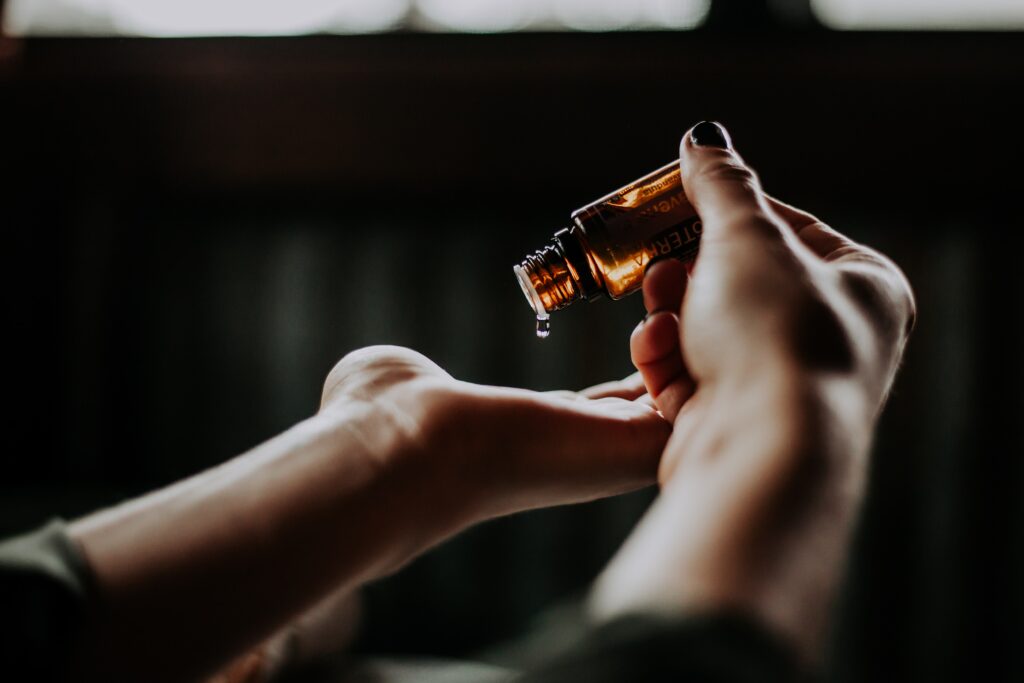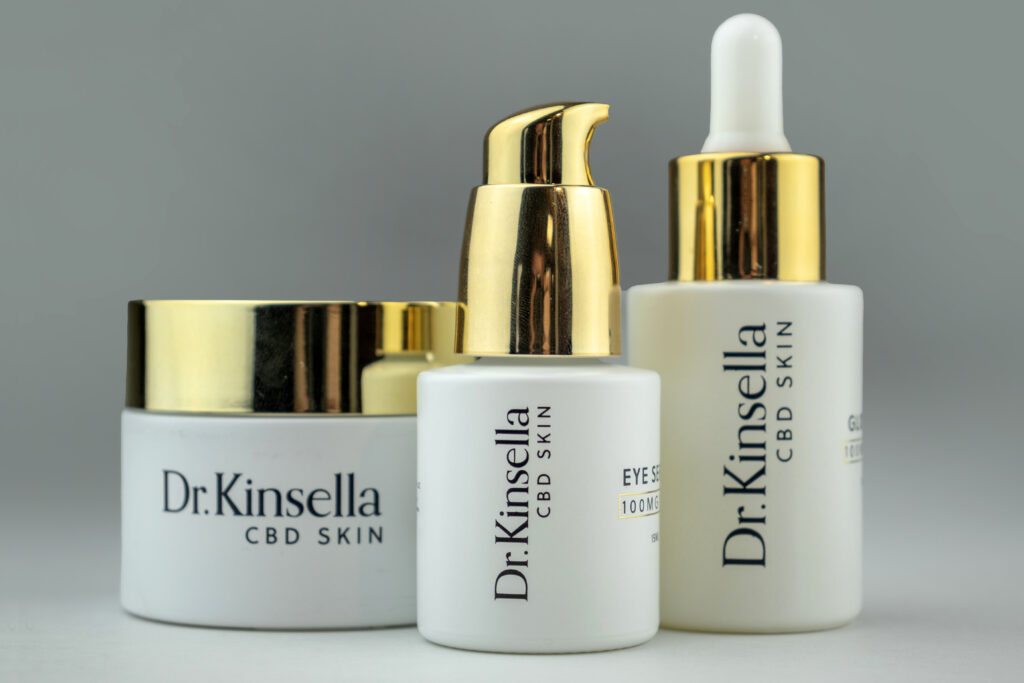GLOW OIL
FACE CREAM
EYE SERUM
Jojoba Oil Benefits for Skin Reviewed
Key points
- Jojoba oil is a powerful emollient extracted from jojoba plants grown in North America’s deserts.
- This ingredient is chemically similar to skin sebum, which is why it moisturises the skin without clogging pores or causing acne.
- This oil has potent moisturising, anti-bacterial, anti-ageing, non-comedogenic, antioxidant, soothing, healing, and cleansing properties.
- Dr. Kinsella Premium Glow Oil and Premium Face Cream combine jojoba oil with other powerful ingredients to help your skin stay young, healthy, and hydrated.
We don’t always appreciate all the wonderful things nature gives us. This also applies to skincare, as there are a plethora of natural ingredients that are extremely beneficial to our skin. Some are well-known, for example, everyone has heard of aloe, lavender oil, calendula, olive oil, and so on. But jojoba oil has almost magical skincare properties, yet very few people know why this ingredient is so amazing. This article explains why jojoba oil is good for your skin and how you can take advantage of its properties.

What is Jojoba Oil?
Jojoba is a shrub that grows in North America. This plant thrives in harsh deserts that would kill most living things, but in addition to surviving in a challenging environment, this shrub also produces nuts with numerous healing properties. These nuts are harvested and processed into oil, which is used in many skincare products to combat acne, psoriasis, sunburn, and skin dryness.
How Does Jojoba Oil Work?
As an emollient, jojoba oil soothes the skin and unclogs hair follicles. Because it unclogs follicles, they become “free” to produce new hair, which is why some people believe it is a good way to fight baldness.
9 Reasons to Use Jojoba Oil
Moisturising
Jojoba oil is a humectant, which means it attracts water and allows it to penetrate deeply into the skin. Because it is lighter than other face oils and does not evaporate like water-based creams, it adds a natural glow, smoothness, and a long-lasting layer of moisture to your skin.
Anti-Bacterial
Jojoba oil acts as an antifungal and anti-bacterial agent, killing organisms that cause candida and salmonella. Jojoba oil is great for people suffering from acne because it prevents bacterial growth on the skin and has powerful wound-healing properties.
Antioxidant
Jojoba oil is high in vitamin E, a natural antioxidant. As a result, it is an excellent remedy for fighting oxidative stress, which occurs due to the skin’s everyday exposure to harmful factors in the environment. Jojoba oil also contains vitamins A and D, omega-6, chromium, and zinc minerals, all of which are beneficial to your skin.
Non-Comedogenic
When we hear the word ‘oil’, we immediately think of something that feels sticky and too heavy for our skin, but jojoba oil is non-comedogenic, so it works differently. According to research studies, its composition is similar to the sebum produced by the human body, so our skin perceives jojoba as its own oil. This reduces the chance of bacteria accumulating on the skin and moisturises the skin without clogging pores, preventing acne.
Anti-Ageing
Oxidative stress also accelerates the ageing process. Because jojoba is a good moisturiser packed with antioxidants, it reduces the appearance of fine lines and wrinkles and keeps your skin looking younger for a longer period of time.
Hypoallergenic
Because jojoba can treat psoriasis and eczema, it is suitable for people with sensitive skin. Scientific evidence also shows that allergic reactions to this ingredient are exceptionally rare.
Soothing
Jojoba oil can relieve irritation and discomfort. Many sunscreen products contain this ingredient because it has a calming effect and reduces the likelihood of peeling after sun exposure. Furthermore, it not only combats the aftereffects of the sun but also protects the skin from it. However, it should not be used as a substitute for traditional SPF products.
Wound and Scar Healing
Jojoba oil has an additional ability to stimulate wound healing by encouraging skin cells to reunite after being separated by a scratch or cut. Vitamin E found in jojoba oil is commonly used to treat scars, so you can try the oil as an anti-scar remedy. If you have acne scars, jojoba’s wound-healing properties will come in handy.
Cleansing
Jojoba oil balances the oil in your skin, keeping it clean and reducing the appearance of pores.

How to Use Jojoba Oil for Your Face
The best way to maximise the benefits of jojoba oil is to use the correct procedure when applying it. Here are the steps to follow:
- Wash your face.
- Use a toner.
- Select a product that contains jojoba oil. This ingredient is frequently found in face creams, oils, and serums. Dr. Kinsella’s Glow Oil and Premium Face Cream are two examples. These are high-quality products that fight premature ageing, brighten dull skin by supplying essential moisture, and allow the skin to regenerate and rejuvenate itself.
- Continue living your best life!
What Skin Types Can Benefit From Jojoba Oil?
- Sensitive: Because jojoba oil is a gentle ingredient, it will soothe sensitive skin.
- Oily: As mentioned above, jojoba oil is similar to skin sebum, so it helps to balance natural skin oils. As a result, it will not clog the pores and will help your skin stay clear.
- Dry: Because jojoba oil is a humectant, it will be an excellent solution for those who struggle with dry skin.
- Combination: Since this ingredient balances natural sebum levels, it will increase and decrease the moisture levels when needed.
Final Thoughts
To summarise, jojoba oil has a plethora of beneficial and healing properties for your skin. It’s a safe and effective anti-ageing and hydrating ingredient. Try Dr. Kinsella’s products to reap all of the benefits of jojoba enhanced by other natural ingredients and enjoy smooth and glowing skin.
FAQs
Is jojoba oil safe?
Yes, jojoba oil is safe to use topically on the skin because it is a natural ingredient suitable for all skin types.
Does jojoba oil clog pores?
Jojoba oil is a non-comedogenic ingredient that is similar to our own sebum. As a result, it is extremely unlikely that it will clog pores.
Will jojoba oil lighten skin?
Jojoba oil contains vitamin E, which is helpful in healing scars, as well as lightening dark spots. Thus, products containing this oil can make the skin appear lighter in tone.
